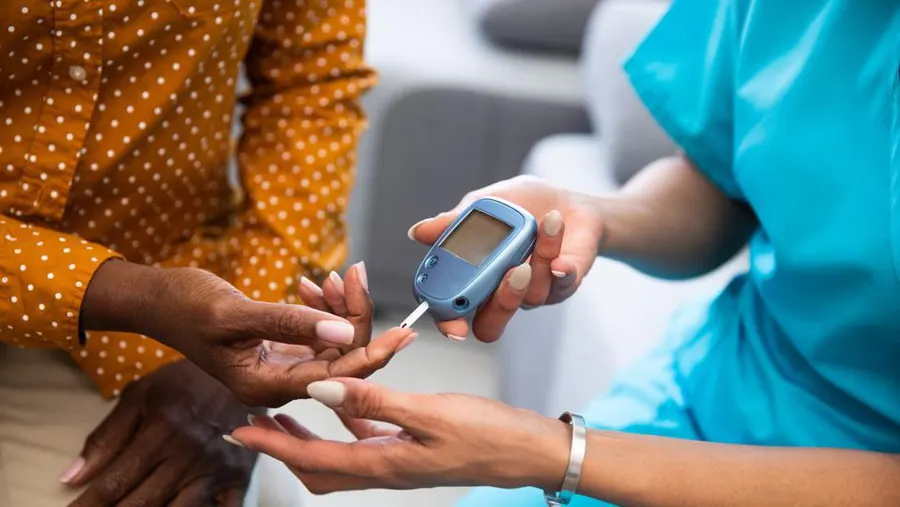
Diabetes is a chronic condition that affects how your body metabolizes glucose (sugar), resulting in high blood sugar levels. There are several types of diabetes, but the most common are type 1 diabetes, type 2 diabetes, and gestational diabetes. Here are the symptoms and causes associated with diabetes:
Common Symptoms of Diabetes:
Frequent Urination: Increased frequency of urination, particularly during the night (nocturia).
Excessive Thirst: Feeling constantly thirsty and having an unquenchable thirst.
Increased Hunger: Persistent hunger, even after eating.
Unexplained Weight Loss: Sudden and unexplained weight loss despite regular food intake.
Fatigue: Feeling tired, weak, and lacking energy throughout the day.
Blurred Vision: Experiencing blurry or distorted vision.
Slow Healing: Wounds, cuts, or sores taking longer than usual to heal.
Recurrent Infections: Frequent infections, particularly urinary tract infections, yeast infections, and skin infections.
Tingling or Numbness: Feeling tingling, numbness, or a “pins and needles” sensation in the hands or feet.
Causes of Diabetes:
Type 1 Diabetes: It occurs when the immune system mistakenly attacks and destroys the insulin-producing cells in the pancreas. The exact cause is unknown, but it is believed to involve genetic and environmental factors, such as certain viral infections or autoimmune conditions.
Type 2 Diabetes: It develops when the body becomes resistant to insulin or when the pancreas doesn’t produce enough insulin to maintain normal blood sugar levels. Risk factors for type 2 diabetes include obesity, sedentary lifestyle, unhealthy diet, family history of diabetes, and advancing age.
Gestational Diabetes: It occurs during pregnancy when hormonal changes and insulin resistance lead to high blood sugar levels. Most women revert to normal blood sugar levels after delivery, but gestational diabetes increases the risk of developing type 2 diabetes later in life.
Other Causes: Other less common types of diabetes include genetic mutations, certain medical conditions (e.g., pancreatitis, Cushing’s syndrome), and medication-induced diabetes (e.g., corticosteroids).
It’s important to note that the symptoms and causes can vary depending on the type of diabetes. If you experience symptoms associated with diabetes, it is essential to consult a diabetes specialist for proper diagnosis, treatment.






